I posted this question before but it was not really answered
I posted this question before but it was not really answered and incomplete.
Use the table below, displaying the income and expenditures in an economy.
Calculate missing data from the table.
Income/Expenditure Flows
Amount (in billions)
Consumption expenditure
$7
Government expenditure
$5
Depreciation
$3
Net taxes
$2
Investment
$4
Net exports
$1
Expenditures
Income
GDP
Calculate the following.
Using the data from a partial set of national income and expenditure data, address the following:
Calculate gross domestic product (GDP) using the expenditure approach.
Determine net domestic product, gross national product (GNP), and statistical discrepancy.
Item
Amount in 2010 (in billions)
Government expenditure (G) =
$8
Consumption expenditure (C) =
$20
Investment (I) =
$5
Net exports (NX) =
$1.5
GDP (expenditure approach)=
Total wages =
$21
Net operating surplus =
$11
Net domestic product =
Indirect taxes minus subsidies =
$3.5
Capital consumption =
$2
GDP (income approach)=
Statistical discrepancy =
Net factor income from abroad =
$5.5
GNP =
Consider the tables.
Given production and price data below, address the following:
Calculate an economy\'s nominal GDP and real GDP.
In 2000:
Item
Quantity (millions)
Price ($/unit)
Expenditure
(millions of $)
Socks
15
5
75
SIM cards
20
2
40
Defense Budget
9
5
45
Real/Nominal GDP = 160
In 2003:
Item
Quantity (millions)
Price ($/unit)
Expenditure
(millions of $)
Socks
15
5
75
SIM cards
20
5
100
Defense Budget
20
10
200
Nominal GDP =
2003 Quantities valued at 2000 prices:
Item
Quantity (millions)
Price ($/unit)
Expenditure
(millions of $)
Socks
SIM cards
Defense Budget
Real GDP =
Answer the following questions.
How do you measure GDP?
How do you measure real and nominal GDP?
How do you determine Consumer Price Index and what are its limitations?
Which of the following expenditures will be included in GDP which will be excluded from the calculation? Explain your answers.
Spare tires bought by Across America, a car rental company
Textbooks bought by college students
Cabinets purchased by a furniture store
A new car purchased by an NFL player
A cruise ship bought by Carnival
| Income/Expenditure Flows | Amount (in billions) |
| Consumption expenditure | $7 |
| Government expenditure | $5 |
| Depreciation | $3 |
| Net taxes | $2 |
| Investment | $4 |
| Net exports | $1 |
| Expenditures | |
| Income | |
| GDP |
Solution
Q2.
Calculate the following.
Using the data from a partial set of national income and expenditure data, address the following:
Calculate gross domestic product (GDP) using the expenditure approach. Determine net domestic product, gross national product (GNP), and statistical discrepancy.
Calculating GDP by expenditure approach -
GDP = Government expenditure (G) + Consumption expenditure (C) + Investment (I) + Net Exports (NX)
= $8 + $20 + $5 + $1.5
= $34.5
The GDP by expenditure approach is $34.5.
Calculate Net Domestic Product by income approach -
NDP = Total wages + Net operating surplus
= $21 + $11
= $31
The NDP by inocme approach is $31.
Calculate GDP by income approach -
GDP = NDP + Indirect taxes minus subsidies + Capital consumption
= $31 + $3.5 + $2
= $36.5
The GDP by income approach is $36.5
Calculate Statistical discrepancy -
Difference between GDP by two approaches = GDP by income approach - GDP by expenditure approach
= $36.5 - $34.5
= $2
Statistical descrepancy = Difference between GDP by two approaches/2 = $2/2 = $1
The statistical discrepancy is $1.
Calculate GNP -
GNP is being calculated using GDP by income approach -
GNP = GDP (Income approach) + Net factor income from abroad - Statistical discrepancy
= $36.5 + $5.5 - $1
= $41
The GNP is $41.
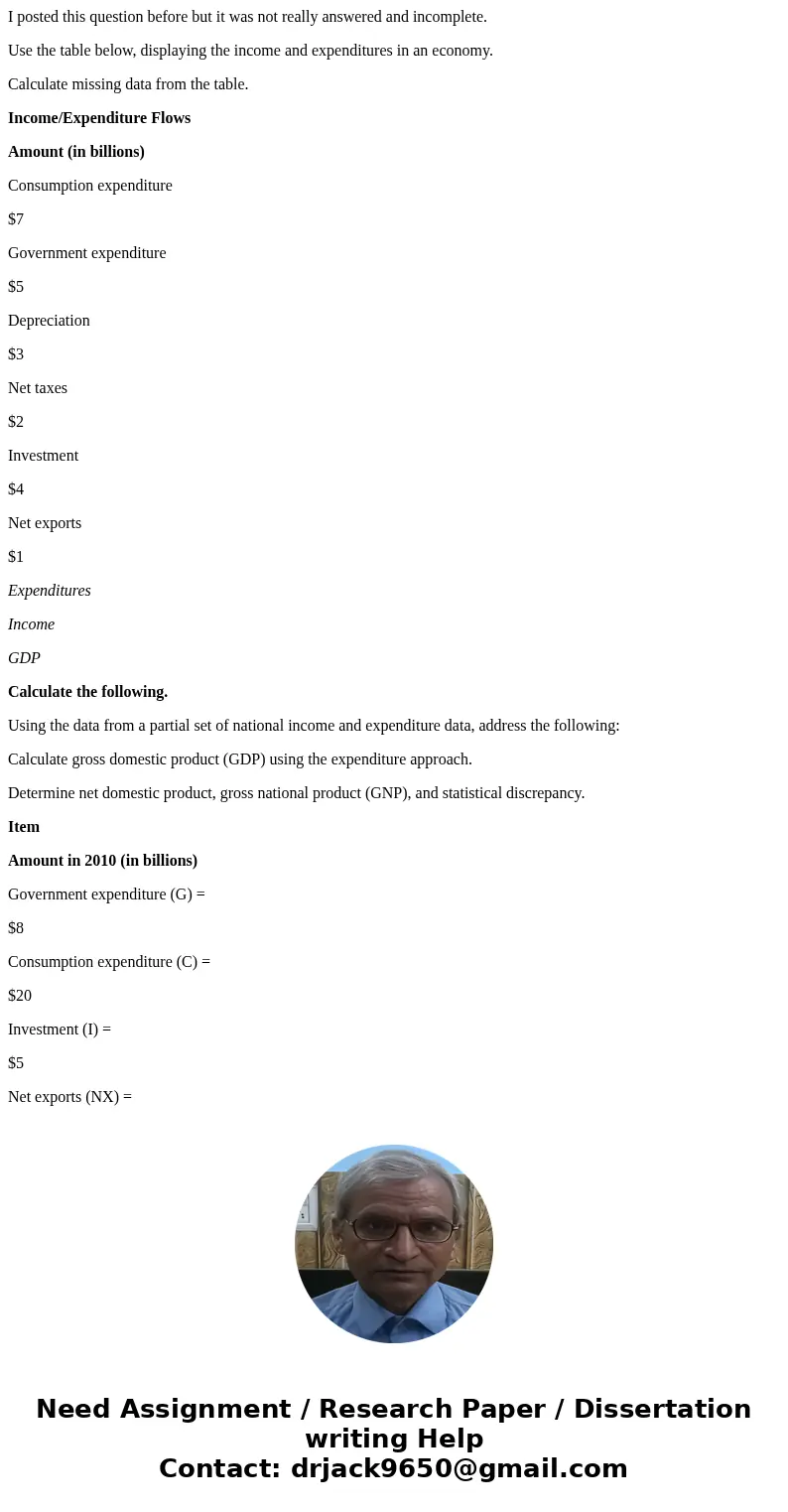
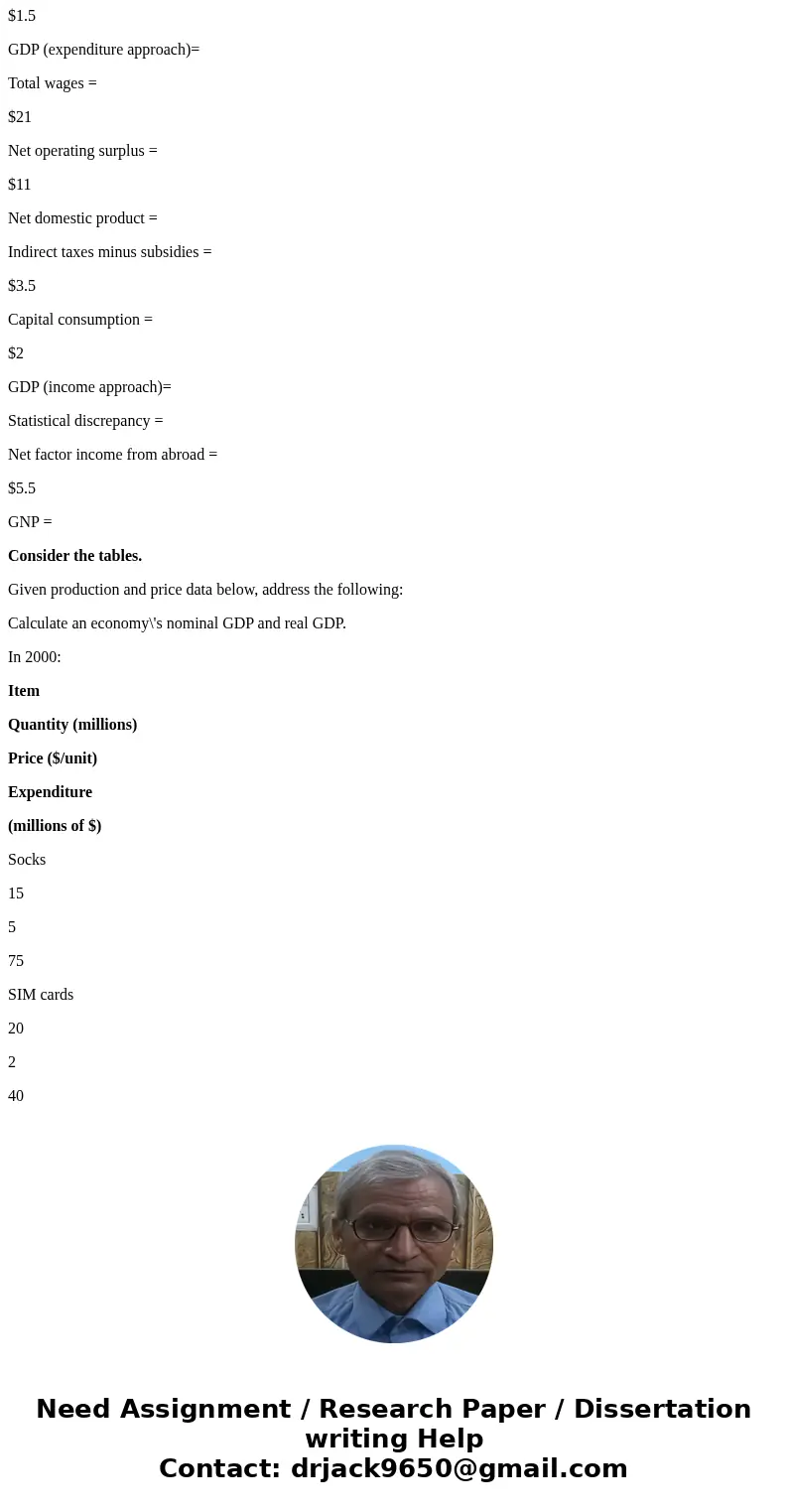
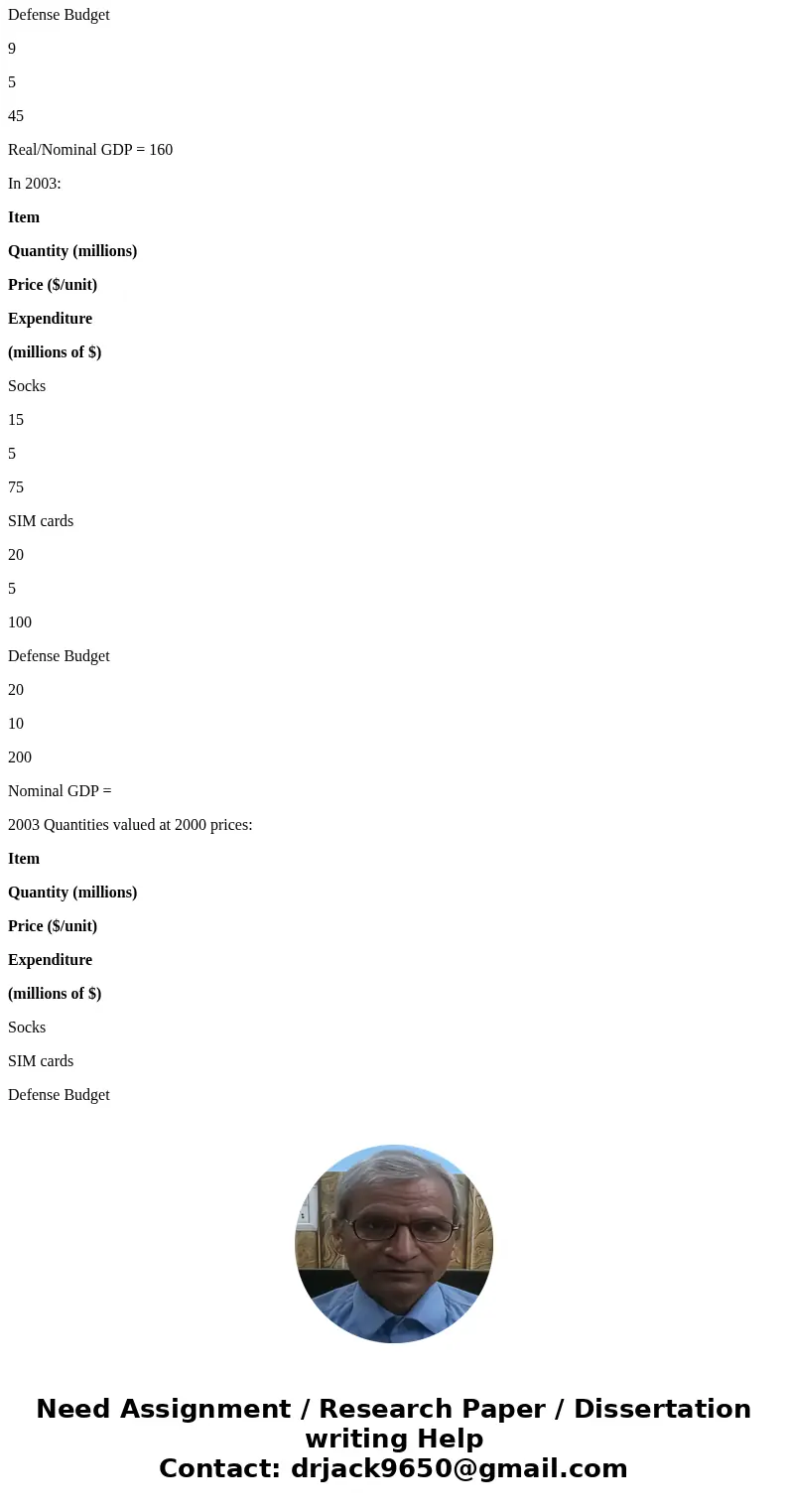
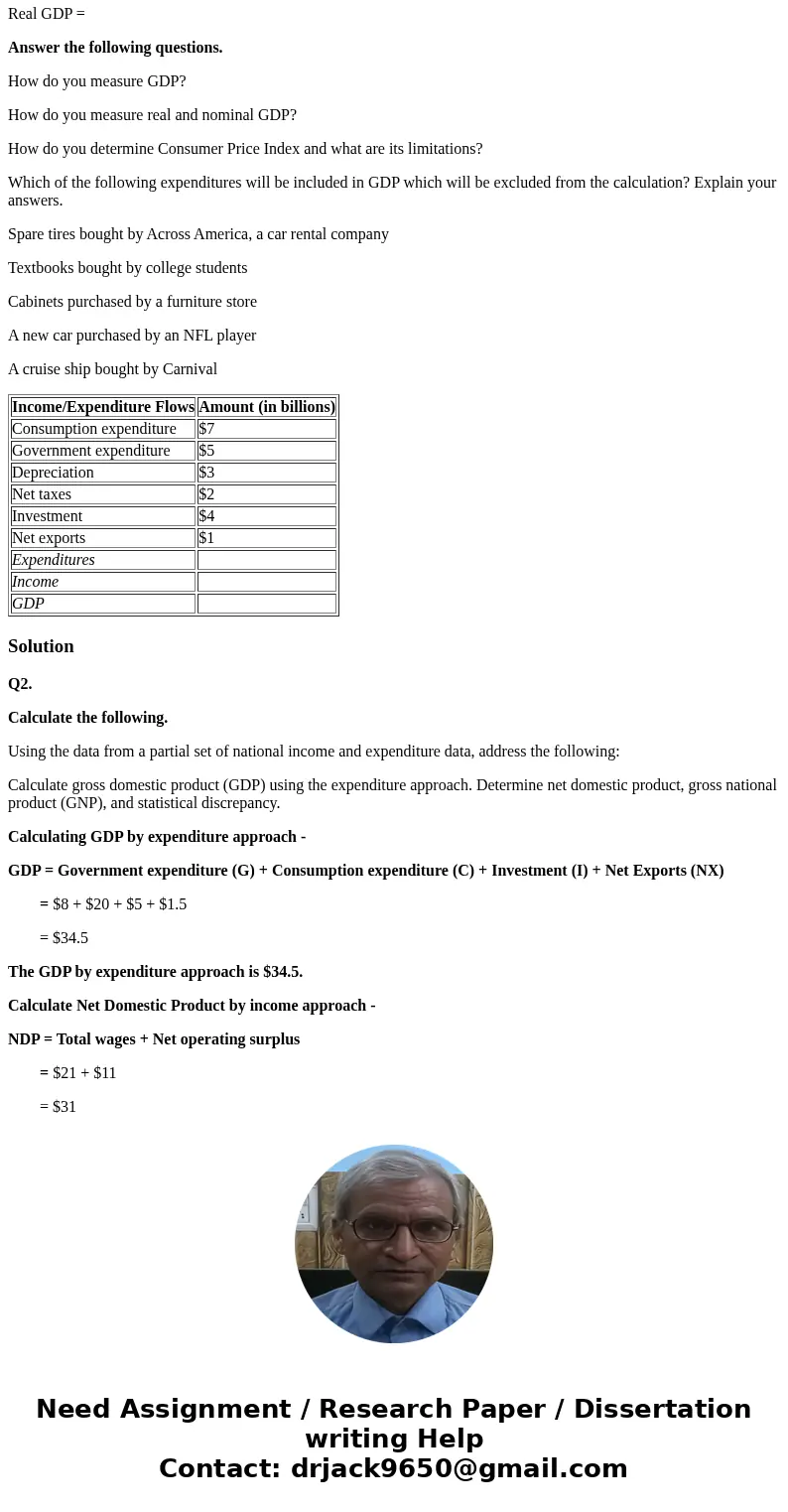
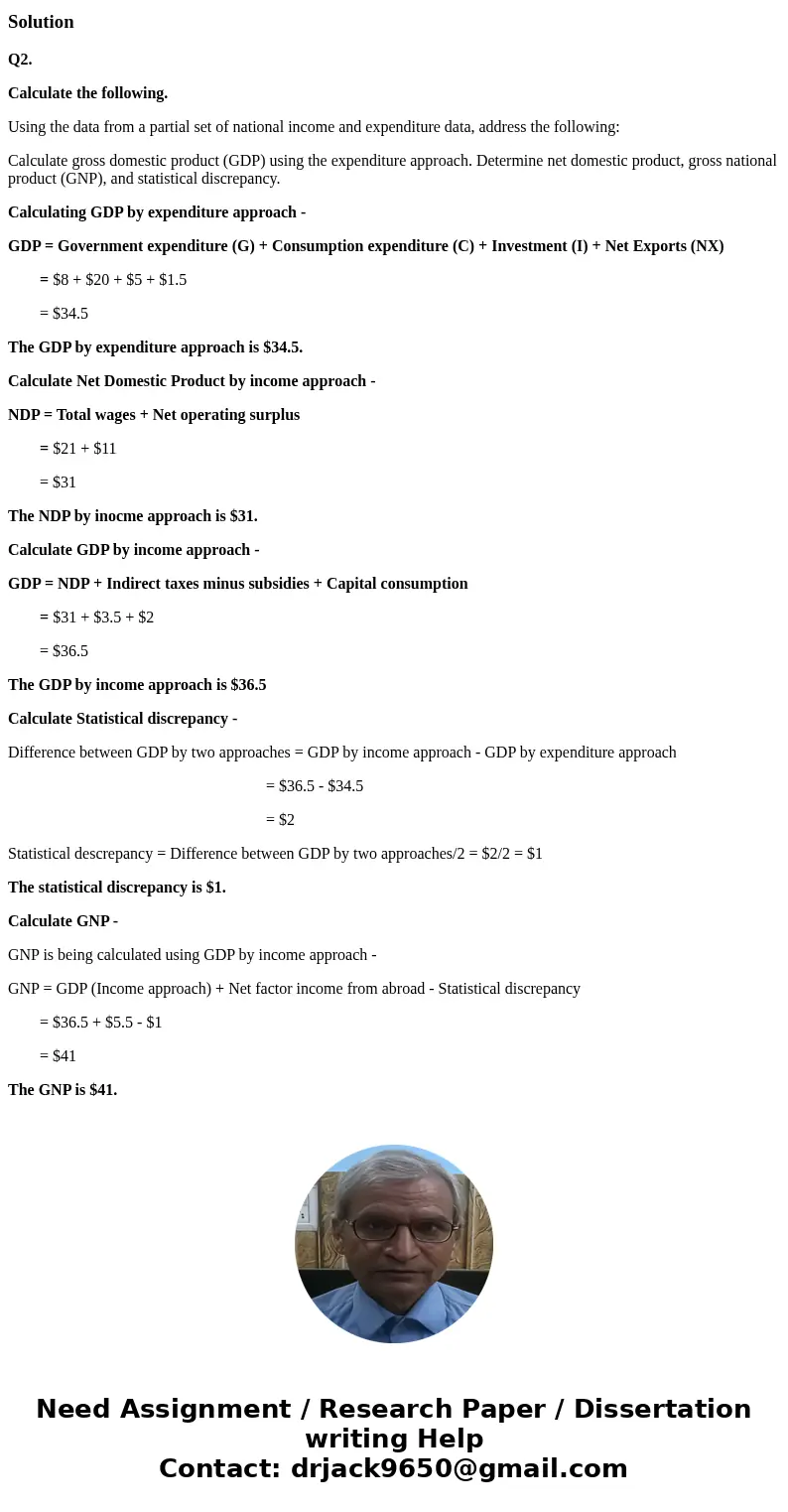
 Homework Sourse
Homework Sourse